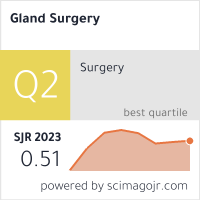TECHNOLOGY IN HEALTH CARE: OPPORTUNITIES AND CHALLENGES
Abstract
The integration of technology in health care has revolutionized the industry, offering unprecedented opportunities to improve patient outcomes, streamline workflows, and reduce costs. From telemedicine and wearable devices to artificial intelligence (AI) and robotic surgeries, technological advancements have transformed the way health care is delivered and accessed. These innovations enable personalized treatment plans, early disease detection, and continuous patient monitoring, significantly enhancing the quality of care.
However, the adoption of technology in health care is not without challenges. Issues such as data privacy, cybersecurity risks, the digital divide, and the high cost of implementation pose significant barriers. Additionally, the need for continuous training and adaptation for health care providers, as well as regulatory hurdles, can slow the pace of technological integration.
This study explores the dual aspects of technological innovation in health care, highlighting key opportunities and addressing critical challenges to ensure sustainable and equitable advancements in the sector. The aim is to provide a balanced perspective that informs policymakers, stakeholders, and practitioners about leveraging technology effectively while mitigating associated risks





